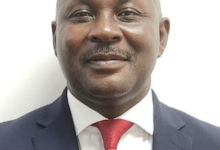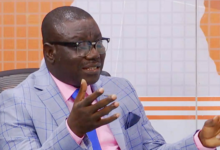
A project aimed at monitoring and reporting on campaign spending, abuse of incumbency, and campaign financing ahead of the December 7 general election was yesterday launched in Accra.
The 10-month project is an initiative by the Ghana Integrity Initiative (GII), in partnership with the Ghana Anti-Corruption Coalition (GACC) and the Centre for Democratic Governance (CDD-GHANA).
It aims to generate empirical data on the evidence of campaign financing activities, and to increase public awareness of the role of money in elections and the current campaign financing regime.
Trained personnel would be deployed to monitor campaign financing and abuse of state resources, while others would track campaign financing at the national level.
The monitoring of campaign financing and abuse of state resources would cover 41 and 67 constituencies, respectively.
The project is being funded by the United States Agency for International Development (USAID) through the International Foundation for Electoral Systems (IFES).
In a virtual presentation of the project methodology, Professor George Ofosu, London School of Economics and Political Science, UK, said “What we are trying to do is to keep our eyes on the ground, try to establish, for example, if we’re thinking about a rally, how many rallies are organised, and that would be the quantity by the presidential candidate, and then try to get as close as possible to how much each of these rallies cost.”
Speaking to the media after the launch of the project, the Executive Director of GII, Mary Addah, said the CSOs undertaking the project were concerned about the issue of campaign financing, abuse of state resources, and voting buying that impacted the integrity of the country’s electioneering process.
She explained that such issues had been a usual occurrences in elections held at all levels in the country over the years because the laws of the country such as the 1992 Constitution and the Political Parties Act did not envisage them which had created a gap in the country’s political space.
“ As I mentioned earlier, one of the clear gaps we see is the fact that both the Political Parties Act and the 1992 Constitution did not envisage some of these issues of vote buying, campaign financing and abuse of incumbency because we believe that we are a honest people who believe in volunteerism to do a good job,” she said.
Mrs Addah, therefore, called for the reform of the Political Parties Act and the 1992 Constitution to help curb such issues and safeguard the integrity of the country’s election process.
For his part, the Director of Programmes, CDD-Ghana, Mr Frederick Adu Gyamfi, bemoaned the failure by political parties to disclose their source of funding, as well as the use of state media by incumbent governments during election periods.
He urged political parties to disclose their source of funding and also called on the media to provide equal opportunity for all political parties to disseminate their policies to the electorates.
BY BENJAMIN ARCTON-TETTEY






